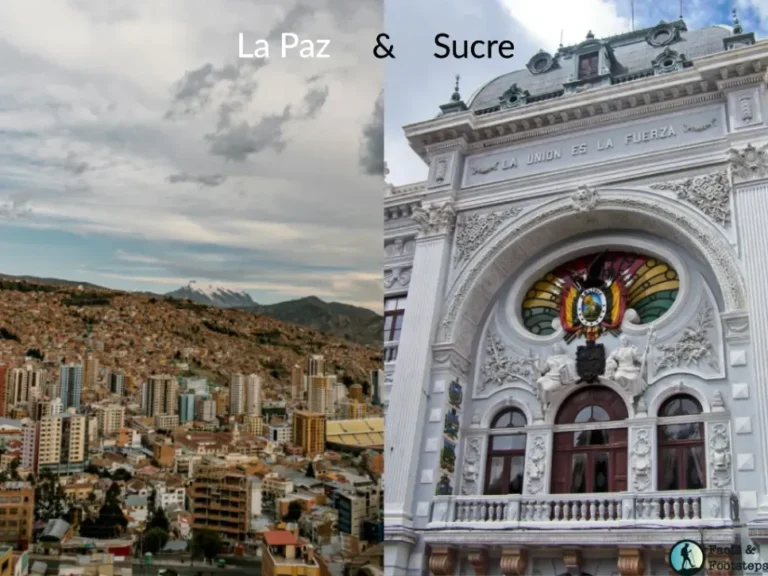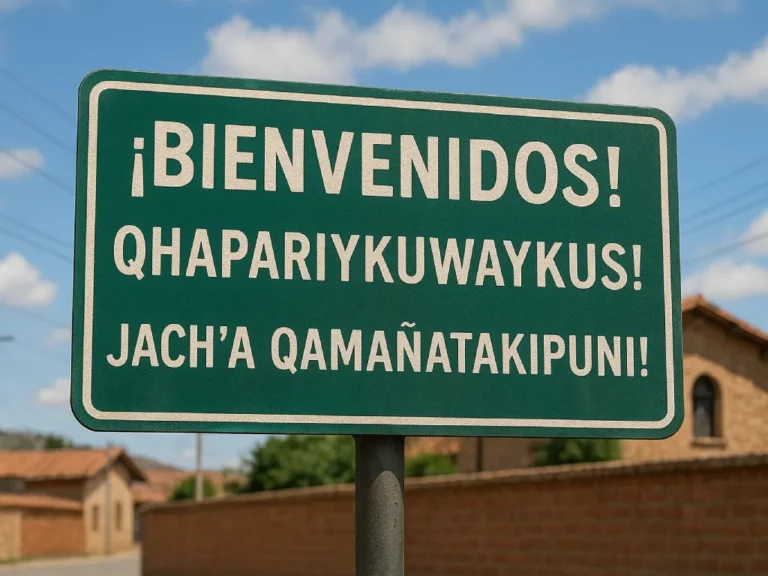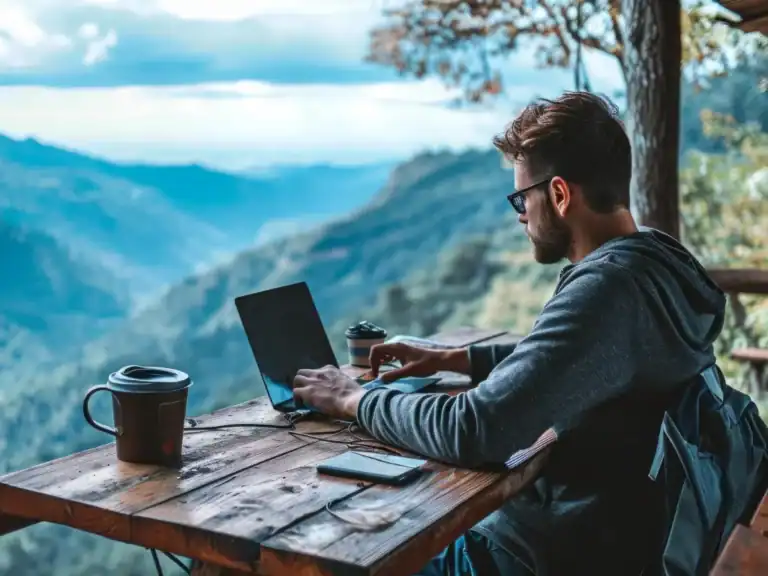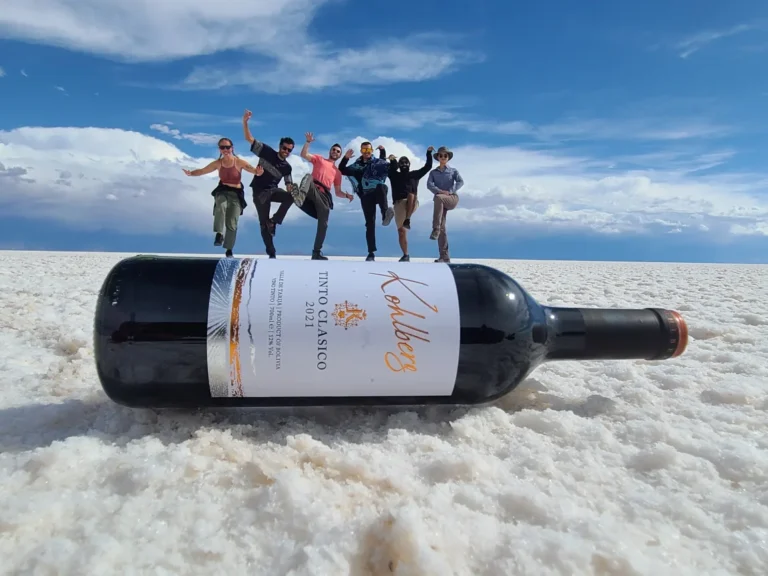Crime Rate in Bolivia: What the Numbers Actually Say

When people found out I went to Bolivia, one of the first things they asked is whether it felt safe. Not “how was the salt flat sunrise” or “did you try llama steak” – just straight into the crime chat.
So let’s have a proper look. Not based on what someone’s cousin said on Reddit, but what the actual crime rate in Bolivia tells us. And more importantly, what it’s like when out and about.
Crime Stats (Without the Panic)
Bolivia had around 535 homicides in 2023, which works out at 4.3 per 100,000 people. That might sound high, but it’s actually way lower than countries like Brazil or Colombia. For context, the US that year was around 6.3. Not what most people expect!
For those wondering about the trend, Bolivia’s crime rate hasn’t spiked – it’s been pretty steady since 2020. And when comparing to previous years such as in the Bolivia 2021/2022 years, the rate continues to do so.
There’s also something called a victimisation rate – basically how many people say they’ve had something nicked, scammed or dealt with crime in some way. That sat at 33% last year. High, but mostly low-level stuff.
What Kind of Crime Happens?
You’re more likely to lose your phone than get into serious trouble. The usual suspects:
- Pickpocketing in busy markets
- Dodgy taxis or round-the-block rides
- Fake officials asking to see your passport
- Classic distraction scams
I’ve already covered these in more detail in my Bolivia safety guide, so won’t do a deep dive here. But short version – most of it’s avoidable if you’re switched on.
If you’re more interested in what’s good to do while you’re there, my Bolivia highlights guide might be a better scroll. Less chat about thieves, more chat about flamingos.
Different Cities, Different Vibes
La Paz feels a bit more hectic. Petty theft happens, especially at bus stations or touristy spots. But it’s also the place where you can bike Bolivia’s Death Road so pick your battles.
Santa Cruz is bigger, flashier & sometimes gets a few organised crime headlines. Nothing major if you’re passing through, just keep your head up.
Sucre & Cochabamba? More chill. I found them easier to navigate, locals friendlier & less of that “watch your pockets” tension.
In smaller towns or villages, it’s more likely your bus is three hours late than your bag goes missing.
Travellers vs Locals
Most travellers deal with small stuff – overpaying for a taxi, a hand slipping into your bag, that kind of thing. Locals, on the other hand, face things like fraud or house break-ins a bit more often. Things like this affecting the crime rate in Bolivia I personally would be more worried about.
If you’re thinking of staying long-term, I’ve written about what living in Bolivia’s actually like – from rent & remote work to strange visa chats with your landlord.
And yep, it’s very cheap. I had days where I spent less than £15 & still ate well, got around & grabbed a beer.
Reporting Crime (and Hoping for the Best)
Police are around, but it’s not exactly CSI. Reporting something means filling in paperwork, being patient & sometimes just letting it go.
Embassies are your best shout if things go south. Bigger cities like La Paz & Santa Cruz have tourist police, but don’t expect them to come running if your crisps get pinched.
For a bit more context on why some of this stuff’s the way it is, I’ve written about Bolivia’s economy & how being labelled a “poor country” only tells half the story.
Fun Fact: Bolivia has 37 official languages. Spanish is the main one, but in the highlands you’ll hear Aymara or Quechua all the time. Even signs can be trilingual, which makes directions a bit of an adventure sometimes.

FAQ’s On Crime in Bolivia
Generally, yes. Petty theft is more common than violent crime, & most issues can be avoided with basic street smarts.
It’s relatively low. In 2023, Bolivia saw around 4.3 homicides per 100,000 – much lower than many countries in Latin America.
Surprisingly close. The US actually had a higher homicide rate in 2023 – Bolivia’s was lower, at 4.3 vs about 6.3 in the States.
It can feel a bit more hectic, especially in markets or bus terminals. But with a watchful eye, you’ll be just fine.
Most violent incidents are local disputes or gang-related – rarely involving tourists unless you’re very unlucky or doing something daft.
Final Word: Should You Stress?
Not really. Crime happens, but it’s rarely violent & even more rarely aimed at tourists. Keep your bag close, don’t wave your phone about like a lighthouse, and avoid those “shortcut” alleys when you’re lost at night.
The stuff that’ll actually catch you off guard? The altitude, the buses, and the sheer number of jumpers you’ll suddenly own made entirely from alpaca.
If you want to figure out when to go, my Bolivia climate guide breaks it down by region. I’ve also got a post on the best time of year to visit, which helps if you’re planning around dry season, wet season or just trying to avoid other tourists.
And if you like your travel with a side of trivia – don’t miss Bolivia’s two capital cities, or my breakdown of the local food scene. Spoiler: it’s cheap, carby & often surprisingly good.
Have you had any close calls in Bolivia? Share your safety tips or stories below!
Happy (and hopefully theft-free) Travels!






